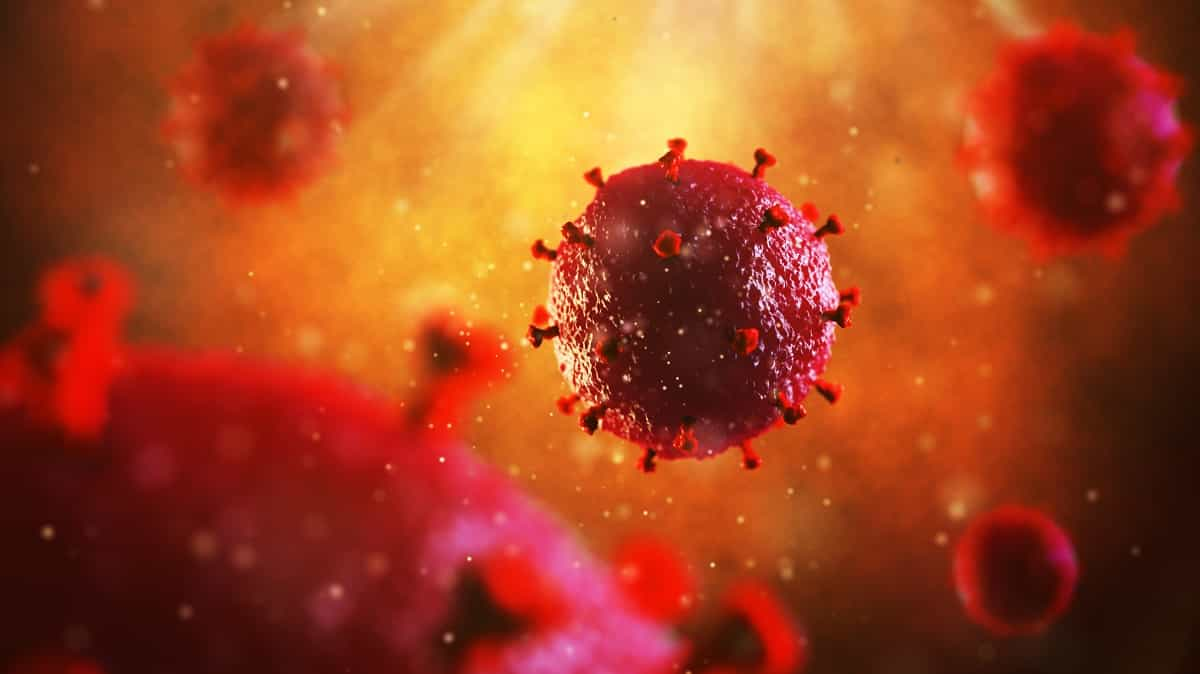Human immunodeficiency virus (HIV) is an infectious disease that affects millions of people around the world, but it is often forgotten that the disease also affects women. HIV has a particularly strong impact on women's reproductive health, with possible implications for fertility, pregnancy and newborn health.
Women account for almost half of people living with HIV worldwide. In parts of sub-Saharan Africa, HIV is the leading cause of death among women of reproductive age. Among the female diagnoses, two-thirds of cases involved women aged 30 to 49, almost always (92%) heterosexual. In 54% of cases, these women discovered HIV infection later. Notably, women between the ages of 40 and 50 were three to four times more likely than younger girls to receive a late diagnosis.
Transmission of HIV between women can occur through unprotected sex, contact of infected blood with skin or mucous membranes, sharing contaminated injection needles, or mother-to-child transmission during pregnancy, childbirth, or feeding. However, women are less likely to transmit HIV through sexual intercourse than through heterosexual sex.
Women living with HIV can also be affected by many other risk factors for reproductive health, such as malnutrition, food insecurity, poverty and limited access to health services.
HIV can have a major impact on women's reproductive health . HIV-infected women can develop gynecological infections such as vaginal candidiasis or bacterial vaginosis, which can make it more difficult to get pregnant and stay pregnant. A woman living with HIV can pass the virus to her child during pregnancy, childbirth, and breastfeeding. The virus can be transmitted across the placenta or during childbirth through contact with maternal secretions, blood or through breast milk.
Testing for HIV before or during pregnancy is important so that if you do become infected, treatment can be started to prevent or limit the spread of the virus.
Additionally, women living with HIV are at increased risk of contracting sexually transmitted infections (STIs), such as chlamydia, gonorrhea, and syphilis, which can increase the risk of infertility and other reproductive problems.
Pregnant women infected with HIV may also be at increased risk of pregnancy complications, such as placental insufficiency and preterm birth . Furthermore, in the absence of antiretroviral therapy, the risk of transmission of the virus from an infected person to the newborn during pregnancy, childbirth or breastfeeding can be substantial. About 25-35% of babies can be infected at birth if the infected mother is left untreated and another 10-15% if they are breastfed.
Treating infected women with HIV drugs can significantly reduce the risk of transmission.
However, thanks to early diagnosis and advances in antiretroviral therapy, women living with HIV may have a better chance of having a healthy baby and having a successful pregnancy.
Women living with HIV may also face social and cultural issues that can impact their reproductive health and their ability to access the health care they need. In many parts of the world, women living with HIV may be marginalized or stigmatized, which can hinder access to health care.
Additionally, many women living with HIV face gender-based issues such as sexual assault and domestic violence, which can increase their risk of infection and complicate HIV management.
To ensure adequate reproductive health for women living with HIV, it is necessary to ensure a wide range of health services, such as HIV testing and antiretroviral treatment, sexually transmitted infection prevention services, fertility and contraceptive options, pregnancy and the prevention of transmission of HIV to the baby.
Furthermore, it is important to address the underlying causes of HIV transmission among women, such as poverty, social exclusion and discrimination, and to implement prevention and awareness programs to raise awareness among women of the underlying causes of HIV.
Overall, women living with HIV need adequate health care not only to ensure their personal health but also to protect the reproductive health of future generations.
You may also like
Combatting Hair Loss: Current treatments and promising studies
Hair loss affects millions globally, manifesting distinctively across genders. With varying incidences worldwide, understanding its causes is crucial. This article delves into symptoms, current treatments, and promising studies, shedding light on related skin and dental issues.
Acne: The disparities between teenage and adult acne
Acne, a common skin condition, affects millions globally, transcending age and geography. This article delves into the symptoms, the disparities between teenage and adult acne, and explores both traditional and revolutionary new treatments, including those still under trial. Additionally, it covers related dermatological issues like hair loss, atopic dermatitis, psoriasis, and dental care advancements.
Atopic Dermatitis: New treatments and research studies are transforming patient care worldwide.
A comprehensive exploration of atopic dermatitis, psoriasis, and related skin conditions including hair loss, acne, and dental care. New treatments and research studies are transforming patient care worldwide.
Dental Implants and Oral Hygiene: Methods and Treatments
This article delves into the world of dental implants and oral hygiene, exploring various methods and treatments available. It highlights the challenges associated with maintaining dental hygiene, the intricacies of implantology, and emerging research in the field. Additionally, it touches upon the innovative treatments for related concerns such as hair loss, atopic dermatitis, psoriasis, and acne.
